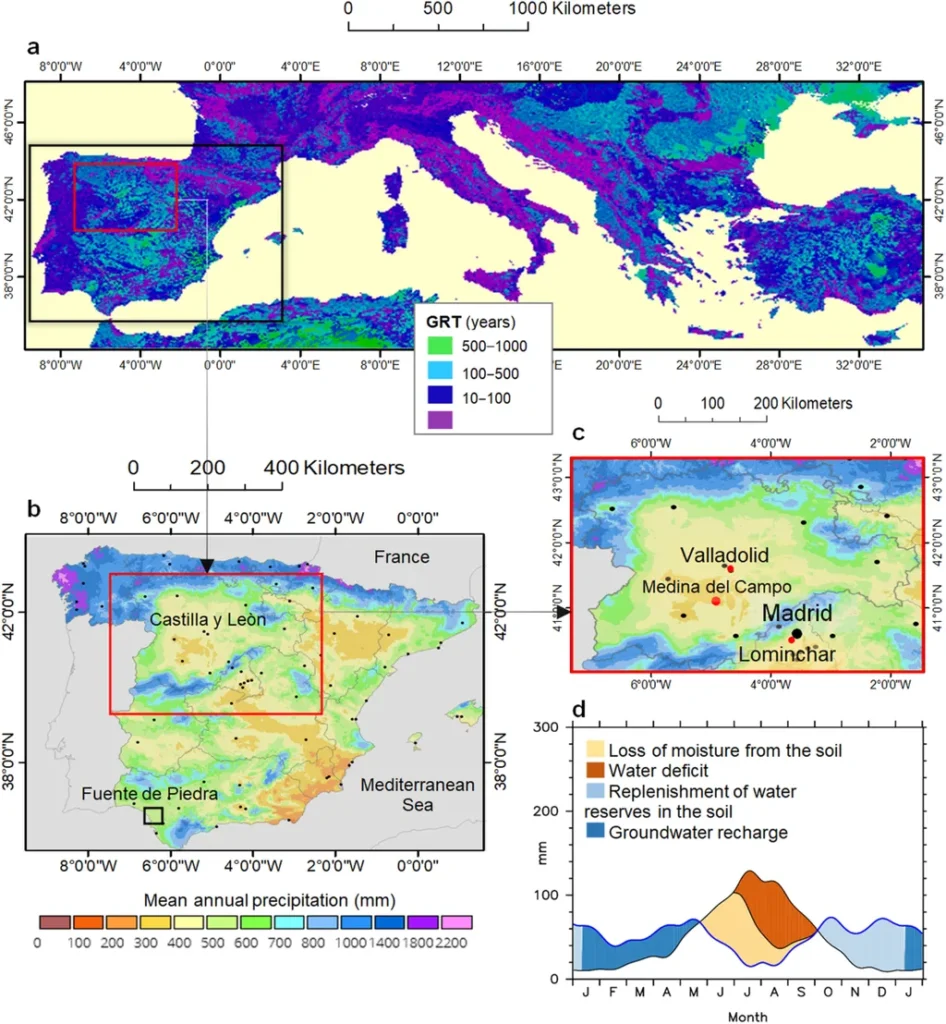In the heart of Spain’s semi-arid La Mancha Oriental region, a quiet revolution is taking place, one that could reshape how we manage precious groundwater resources worldwide. A recent study published in the journal *Environmental Research Letters* (translated as *Letters on Environmental Research*), led by Jaime Hoogesteger from the Water Resources Management Group at Wageningen University and his colleagues, offers a compelling case study of how technology, user-driven initiatives, and state support can coalesce to ensure aquifer sustainability.
Groundwater is the lifeblood of agriculture in arid and semi-arid regions, but over-extraction has led to steady declines in aquifers, threatening the social, agricultural, and ecological systems that depend on them. The La Mancha Oriental Aquifer, a critical water source for the region’s agricultural sector, faced similar challenges until a unique governance system emerged. This system, as Hoogesteger and his team discovered, is a testament to the power of collaboration and technological innovation.
The study highlights how organized groundwater users, in tandem with knowledge institutes and water authorities, developed a governance system that ensures aquifer sustainability. “The use of tempo-spatially explicit data generated through remote sensing technologies co-evolved with the development of a user-based groundwater management institution,” explains Hoogesteger. This co-governance approach has proven effective in regulating groundwater use in the agricultural sector, offering a blueprint for other regions grappling with similar issues.
The integration of remote sensing technologies has been a game-changer. By providing real-time, high-resolution data on groundwater levels and usage, these technologies enable more informed decision-making and proactive management. “This research underscores the importance of socio-technical co-creation for establishing effective groundwater governance systems,” Hoogesteger notes. The success in La Mancha Oriental demonstrates how user-based organizations, supported by an enabling institutional environment, can drive sustainable water management practices.
The implications for the energy sector are significant. As water is a critical input for many energy production processes, particularly in power plants and for the extraction of unconventional oil and gas, sustainable water management practices can enhance energy security and reduce operational risks. The model developed in La Mancha Oriental could inspire similar initiatives in other water-stressed regions, fostering a more resilient and sustainable energy sector.
Moreover, the study’s findings could influence policy and investment decisions. By showcasing the benefits of integrating remote sensing technologies and user-driven governance, the research provides a compelling case for increased investment in these areas. This could lead to the development of new technologies and services, creating commercial opportunities for companies operating in the water and energy sectors.
As the world grapples with the challenges of climate change and water scarcity, the lessons from La Mancha Oriental offer a beacon of hope. By embracing collaboration, innovation, and sustainable practices, we can ensure the longevity of our precious water resources and the systems that depend on them. The study by Hoogesteger and his team serves as a powerful reminder that, with the right approach, we can overcome even the most daunting environmental challenges.

